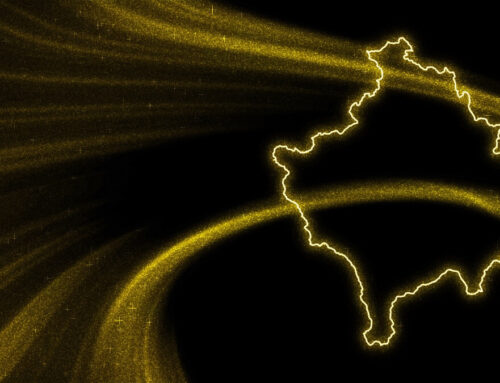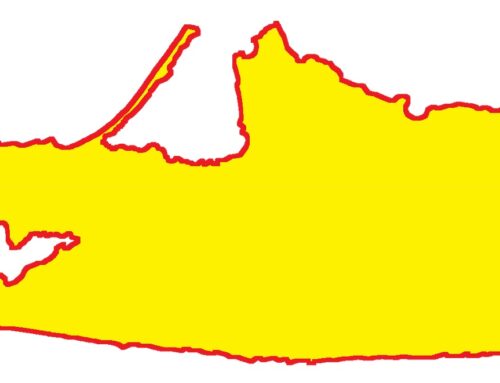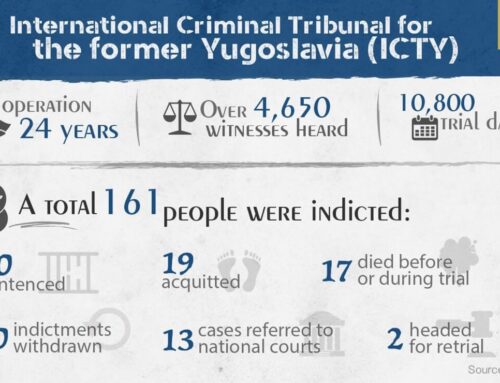After being sentenced to prison because of corruption and abuse of function, the former Macedonian Prime Minister, Nikola Gruevski fled the country. After a couple of days missing, on his Facebook account, Gruevski announced to the Macedonian public that he is in Budapest, looking for a political asylum from the Hungarian government. The reasons behind his action, as Gruevski explained, are the political persecution led by the new Macedonian Government, the political pressures over the judiciary, the dangers of life with which he was confronted. This is an introduction of the story composed of many parts with which are faced the Macedonian and the Hungarian governments, including different levels of political power, political opposition parties, civil society organizations, the academia, the media.
The plethora of the events began when after Gruevski been sentenced to two years in prison because of corruption and abuse of office conviction, fled the boundaries of the Republic of Macedonia basically in front of the eyes of the institutions responsible for situation – the Ministry of Internal Affairs, the Judiciary, and the Office of the Special Prosecutor of the country. Although the passport of the former Macedonian Prime Minister was captured in the Special Public Prosecutor’s Office, Gruevski succeeded with his ID license, and with the Hungarian diplomatic help to escape from Macedonia and by car successfully to pass the Albanian, Montenegrin, and Serbian border. Following the announcements of the Serbian Prime Minister Aleksandar Vucic regarding the delayed domestic and international warrant for Gruevski and the inexistence of regularities of Gruevski to pass the Serbian border, alludes to the fact that Serbian diplomacy might be also included in the Gruevski’s escape from the country.
After the inquiry for asylum, the Hungarian Government, led by the Prime Minister Viktor Orban, responded positively towards Gruevski’s request. Apparently, according to the Hungarian opposition, the Hungarian Prime Minister Viktor Orban has treated Gruevski as a “special migrant”, taking into account that Gruevski has obtained the political asylum, without crossing the borders of the country and looking for an asylum on the border on the Croatian and Serbian side, which is in accordance with the Hungarian Law and regulations.
The commentary of Viktor Orban is that he granted a political asylum to Nikola Gruevski because Gruevski was one of the few politicians, who supported and helped Orban in his policies fighting against the illegal migration, particularly after the migration flow of 2015, when the migrants from the Middle East countries choose the “Balkan route”, to be their most desired road towards the Western European countries. Clearly, Viktor Orban, in this case, showed his goodwill and gratefulness to his ideologically conservative friend, after giving him a support for the spread of the values of “illiberal democracy”, particularly touching fragile categories, such as the migrants. In brief, Orban and Gruevski in 2015, the practitioners of the contemporary political trend of “illiberal democracy” were striving against the core values of the European Union, among which: freedom of movement and, freedom of speech, but simultaneously enjoying the benefits of the EU funds. Undoubtedly, the Hungarian politics is deeply infiltrated in Macedonia, due to the fact that some of the pro-Gruevski media are owned by a deeply connected web of Hungarian media companies and Hungarian media owners from which the main one is Маgyar televizio- public television broadcasting organization in Hungary.
A question that remains open is whether the European Parliament will positively respond upon the request of the Hungarian opposition and will openly discuss this issue in December. It is quite surprising why the EU officials did not express a particular worry, nor gave their opinion regarding these circumstances. An exception of this is the EU Commissioner for Enlargement Negotiations and Neighborhood Policy Johannes Hahn, stating that the decision to grant Nikola Gruevski asylum deserves further explanation from Hungarian authorities. The whole process is complicated, especially after the decision of the European Parliament to trigger Article 7 and the implementation of disciplinary procedures against Hungary for undermining democratic rules. The report accuses Hungary of various breaches of EU values. It cites migrant abuse; restrictions on press freedom; corruption and conflicts of interest; and “stereotypical attitudes” towards women, among other concern.
Part of the Macedonian public and especially the representatives of the civil society organizations in Macedonia, as well as the representatives of the academia; express their opinion that there is something more behind the Gruevski fled. They speculate on the possibility of a political agreement between the Government officials and Gruevski, alluding to the fact that none of the three previous Macedonian Prime Ministers sentenced to prison, served the sentence imposed. Obviously, in Macedonia exist a trend of “permanent not serving a sentence” of high political officials.
Regardless of the political situation of “handover of responsibility”, among the Ministry of Internal Affairs of the country, the Judiciary and the Office of the Special Prosecutor of Macedonia, and regardless of the dilemma, whether Gruevski will be extradited to Macedonia, the inventible truth is that this scandalous situation will contribute to the existing Macedonian fragile image and position in the field of international relations, and will cause damage on the Macedonian road towards EU integration, especially covering the Chapter 23 of the EU acquis- “Judiciary and fundamental rights”.





Leave A Comment